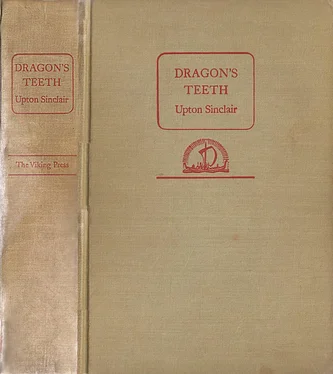Пользователь - o 3b3e7475144cf77c
Здесь есть возможность читать онлайн «Пользователь - o 3b3e7475144cf77c» весь текст электронной книги совершенно бесплатно (целиком полную версию без сокращений). В некоторых случаях можно слушать аудио, скачать через торрент в формате fb2 и присутствует краткое содержание. Жанр: Старинная литература, на русском языке. Описание произведения, (предисловие) а так же отзывы посетителей доступны на портале библиотеки ЛибКат.
- Название:o 3b3e7475144cf77c
- Автор:
- Жанр:
- Год:неизвестен
- ISBN:нет данных
- Рейтинг книги:4 / 5. Голосов: 1
-
Избранное:Добавить в избранное
- Отзывы:
-
Ваша оценка:
- 80
- 1
- 2
- 3
- 4
- 5
o 3b3e7475144cf77c: краткое содержание, описание и аннотация
Предлагаем к чтению аннотацию, описание, краткое содержание или предисловие (зависит от того, что написал сам автор книги «o 3b3e7475144cf77c»). Если вы не нашли необходимую информацию о книге — напишите в комментариях, мы постараемся отыскать её.
o 3b3e7475144cf77c — читать онлайн бесплатно полную книгу (весь текст) целиком
Ниже представлен текст книги, разбитый по страницам. Система сохранения места последней прочитанной страницы, позволяет с удобством читать онлайн бесплатно книгу «o 3b3e7475144cf77c», без необходимости каждый раз заново искать на чём Вы остановились. Поставьте закладку, и сможете в любой момент перейти на страницу, на которой закончили чтение.
Интервал:
Закладка:
and serve him the best of dinners, but you would not thereby make him entirely happy.
Practicing her new role of salonniere, she brought the young people into the conversation; but
this succeeded no better, for it turned out that Charlot, the young engineer, had joined the
Croix de Feu, one of the patriotic organizations which did not propose to surrender la patrie
either to the Reds or to the Prussians. The Croix de Feu used the technique of banners and
uniforms and marching and singing as did the Fascists of Italy and the Nazis of Germany; but
Lanny said: "I'm afraid, Charlot, you won't get so far, because you don't make so many
promises to the workers."
"They tell the people falsehoods," said the young Frenchman, haughtily; "but we are men of
honor."
"Ah, yes," sighed his old friend; "but how far does that go in politics?"
"In this corrupt republic, no distance at all; but we have set out to make France a home for
men who mean what they say".
Lanny spoke no more. It made him sad to see his two foster sons —they were supposed to be
something like that—going the road of Fascism; but there was nothing he could do about it. He
knew that their mother had shared these tendencies. They were French patriots, and he
couldn't make them internationalists, or what he called "good Europeans."
X
Having had such a dose of reaction, he had to have one of hope. He said to Irma: "I really
ought to call on Leon Blum, and perhaps take him out to lunch. Would you care to come
along?"
"But Lanny," she exclaimed, "what is this house for?"
"I didn't suppose you'd want to have him here."
"But dear, what kind of home will it be if you can't bring your friends?"
He saw that she was determined to be fair. He guessed that she had talked the matter out
with the wise Emily, and was following the latter's program. If one's husband must have vices, let
him have them at home, where they may be toned down and kept within limits. After all, Leon
Blum was the leader of the second largest political party in France; he was a scholar and a
poet, and had once had a fortune. In the old days, as a young aesthete, he had been a frequenter
of Emily's salon; now he had exchanged Marcel Proust for Karl Marx, but he remained a
gentleman and a brilliant mind. Surely one might invite him to lunch, and even to dinner—if
the company was carefully chosen. Emily herself would come; and Lanny knew from this that
the matter had been discussed.
He took the good the gods had provided him. The Socialist leader sat in the same chair
which Denis de Bruyne had filled, and maybe he felt some evil vibrations, for he spoke very
sadly. In the midst of infinite corruption he was trying to believe in honesty; in the midst of
wholesale cruelty he was trying to believe in kindness. The profit system, the blind competitive
struggle for raw materials and markets, was wrecking civilization. No one nation could change
this by itself; all must help, but someone must begin, and the voice of truth must be heard
everywhere. Leon Blum spoke tirelessly in the Chamber, he wrote daily editorials for Le
Populaire, he traveled here and there, pleading and explaining. He would do it at the luncheon
table of a friend, and then stop and apologize, smiling and saying that politics ruined one's
manners as well as one's character.
He was a tall slender man with the long slim hands of an artist; a thin, sensitive face, an
abundant mustache which made him a joy to the caricaturists of the French press. He had
been through campaigns of incredible bitterness; for to the partisans of the French right it was
adding insult to injury when their foes put up a Jew as their spokesman. It made the whole
movement of the workers a part of the international Jewish conspiracy, and lent venom to all
Fascist attacks upon France. "Perhaps, after all, it is a mistake that I try to serve the cause,"
said the statesman.
He was ill content with the showing which his party had made at the polls. A gain of
seventeen was not enough to save the day. He said that immediate and bold action was
required if Europe was to be spared the horrors of another war. He said that the German
Republic could not survive without generous help from France. He said that the "Cabinet of
the Barons" was a natural answer to the cabinet of the bigot, Poincare, and to that of the cheat,
Laval. Blum was standing for real disarmament of all the nations, including France, and he had
been willing to split his party rather than to yield on that issue. Said Irma, after the luncheon:
"We won't ever invite him and the de Bruynes at the same time!"
XI
From the time her decision was taken to rent the palace, Irma's mind was occupied with the
problem of a party which tout Paris would attend; a sort of housewarming—Lanny said that a
building of that size, made of white marble, would require a lot of cordiality to affect its
temperature. His wife wanted to think of something original. Parties were so much alike. People
ate your food and drank your wine, often too much of it; they danced, or listened to a singer
they had heard many times at the opera and been bored by. Lanny quoted an old saying:
"Gabble, gobble, git."
Irma insisted that tout Paris would expect something streamlined and shiny from America.
Couldn't they think of something? The husband tried various suggestions: a performing
elephant from the circus, a troop of Arabian acrobats he had seen in a cabaret—their black hair
was two feet long and when they did several somersaults in one leap they brought down the
house. "Don't be silly, dear," said the wife.
He thought of an idea to end all ideas. "Offer a prize of a hundred thousand francs for the
most original suggestion for a party. That will start them talking as nothing ever did." He
meant it for burlesque, but to his amusement Irma was interested; she talked about it,
speculating as to what sort of suggestions she would get, and so on; she wasn't satisfied until she
had asked Emily, and been assured that it might be a good idea for Chicago, but not for Paris.
Even after Irma dropped it, she had a hankering, and said: "I believe my father would have
done it. He didn't let people frighten him away from things."
It would have to be a conventional soiree. The young Robins would come and play—a
distinguished thing to furnish the talent from your own family, and have it the best.
Fortunately the Paris newspapers did not report Communist doings—unless it was a riot or
something—therefore few persons knew that Hansi had assisted in electing Zhess Block-less to
the Chamber of Deputies. (Already that body had met, and the new member, refusing to be
intimidated by the splendid surroundings, had put on his old phonograph record, this time
with a loud-speaker attachment, so that his threats against the mur d'argent had been heard
as far as Tunisia and Tahiti, French Indo-China and Guiana.)
Lanny was fascinated to observe his young wife functioning in the role which she had chosen
for herself. She was not yet twenty-four, but she was a queen, and had found out how queens
conduct themselves. No worry, no strain, no sense of uncertainty. Being an American, she could
without sacrifice of dignity ask the chef or the butler how things were done in France; then
she would say whether or not they were going to be done that way in her home. She spoke with
quiet decision, and the servants learned quickly to respect her; even the new Controleur-
Читать дальшеИнтервал:
Закладка:
Похожие книги на «o 3b3e7475144cf77c»
Представляем Вашему вниманию похожие книги на «o 3b3e7475144cf77c» списком для выбора. Мы отобрали схожую по названию и смыслу литературу в надежде предоставить читателям больше вариантов отыскать новые, интересные, ещё непрочитанные произведения.
Обсуждение, отзывы о книге «o 3b3e7475144cf77c» и просто собственные мнения читателей. Оставьте ваши комментарии, напишите, что Вы думаете о произведении, его смысле или главных героях. Укажите что конкретно понравилось, а что нет, и почему Вы так считаете.




